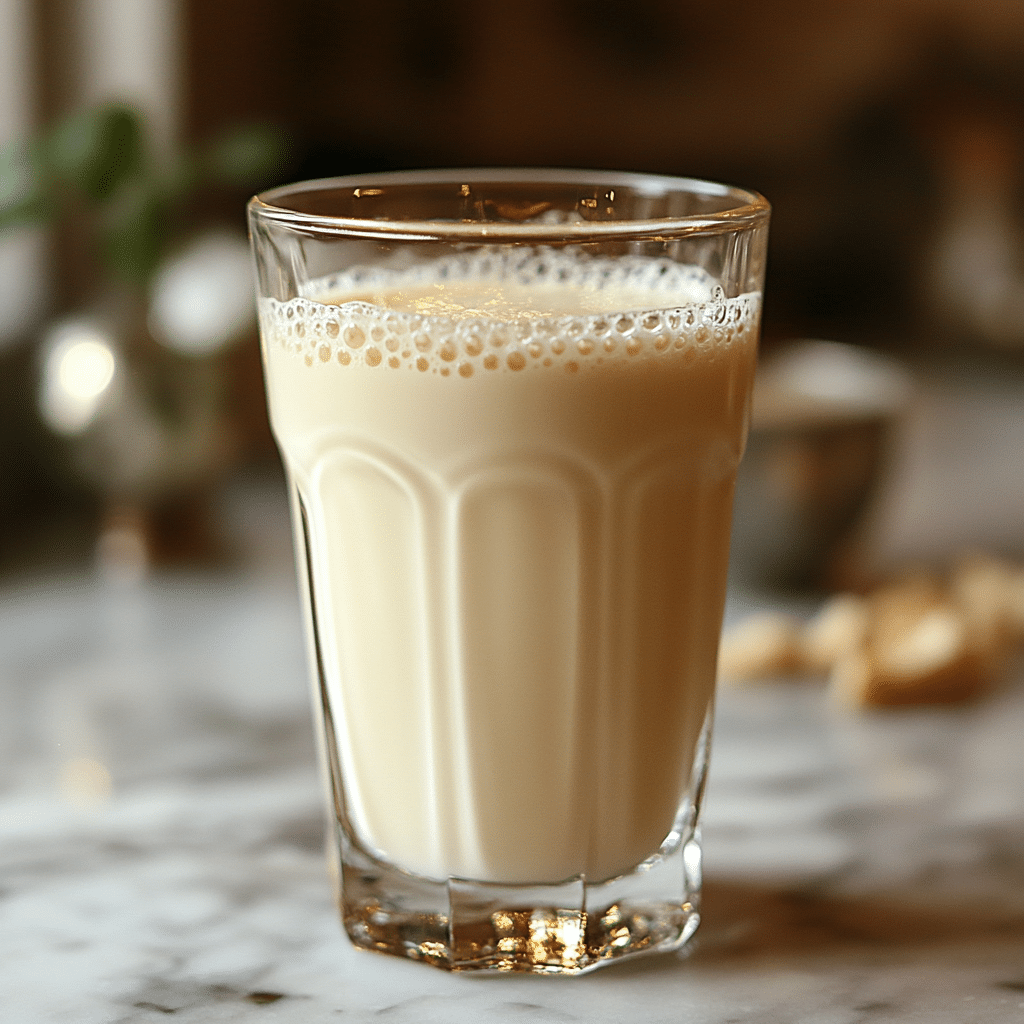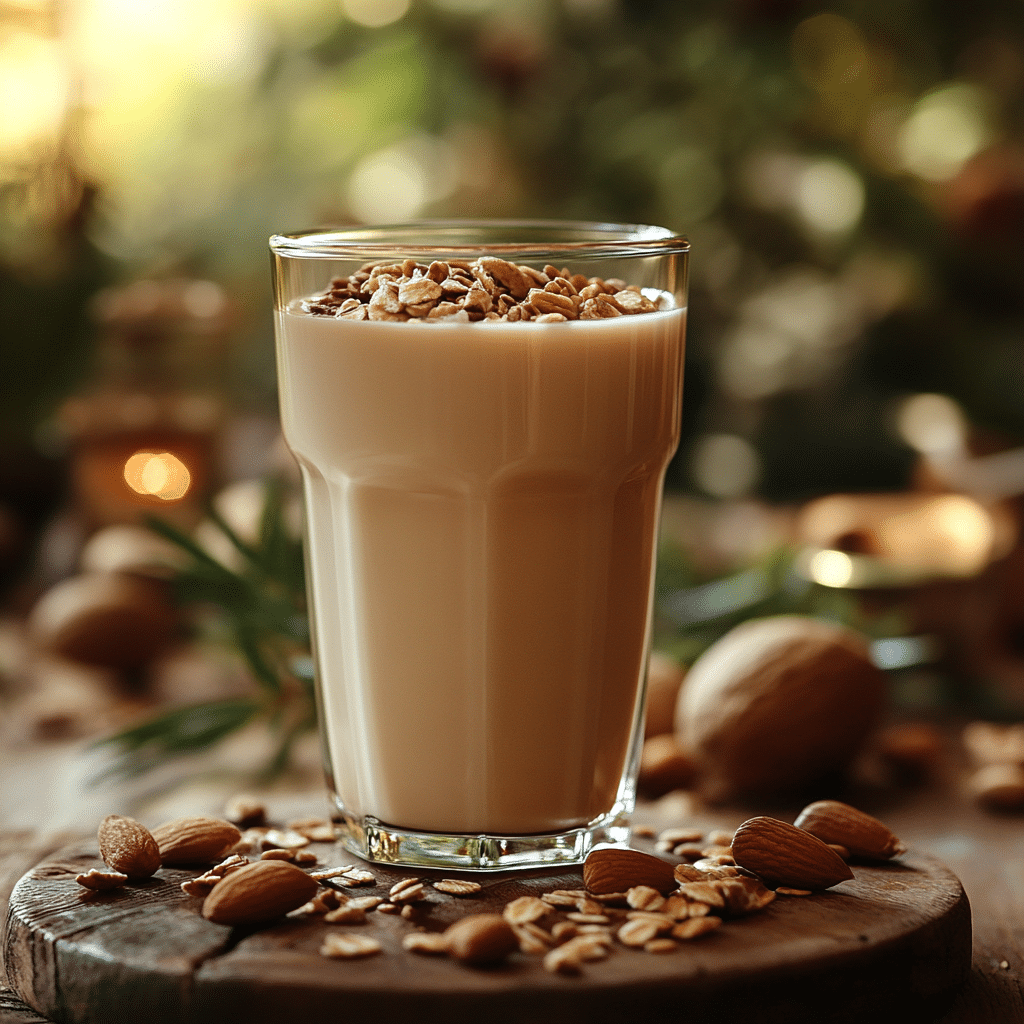In recent years, vegan milk has captured the attention of those seeking a more sustainable lifestyle. With an ever-increasing awareness of health and environmental concerns, it’s no wonder that more folks are swapping traditional dairy for plant-based options. This shift isn’t just about personal preference; it reflects a wider change in our choices, impacting everything from animal welfare to carbon footprints. Dana Ellis Hunnes, PhD, a senior dietitian at UCLA Health, puts it straight: “There’s really no downside to drinking plant-based milk instead of cow’s milk.” In the world of vegan milk, choices abound, so let’s dive into the top contenders that you should definitely consider trying.
1. Top 5 Vegan Milk Varieties You Should Try
1. Almond Milk: Nutrient-Rich and Low-Carbon
First up is almond milk. Renowned for its low calorie count and high vitamin E content, it’s a favorite for many on the vegan journey. Major players like Califia Farms have even crafted barista blends that can elevate your morning coffee to new heights, allowing you to enjoy that creamy, frothy goodness without the dairy. That said, let’s not ignore the elephant in the room: almond farming consumes a lot of water, particularly in drought-stricken regions. So, while indulging in almond milk, it’s crucial to bushwhack through sustainability discussions.
2. Oat Milk: The Sustainable Choice
Next on the list is oatmeal’s claim to fame—oat milk. Brands like Oatly have revolutionized this once-humble beverage, branding it as an eco-conscious option. The beauty of oat milk lies in its efficient use of resources; it generally requires up to 80% less water than dairy milk and has a notably lower carbon footprint. If you’re serious about reducing environmental impacts, this is definitely a viable contender in the vegan milk arena.
3. Soy Milk: A Complete Protein Source
Let’s not forget soy milk, the granddaddy of plant-based milks. It’s been around the block longer than most and packs a punch with protein similar to cow’s milk. Companies like Silk and So Delicious stand out in this category, offering fortified varieties packed with essential vitamins and minerals. However, it’s important to be cognizant of how soy is sourced. Sadly, practices like deforestation in Brazil have shadowed soy farming, so consumers may want to look for responsibly sourced products.
4. Coconut Milk: Rich and Creamy
For those craving a bit of tropical flair in their diets, coconut milk is a rich and creamy option that’s hard to beat. Brands such as Aroy-D sell coconut milk perfect for cooking or sipping. However, while indulging in coconut milk, one must consider the biodiversity impacts of coconut farming. Look for brands championing fair trade practices that support local communities, as they contribute positively to both environmental and social welfare.
5. Pea Milk: The Up-and-Comer
Let’s talk about pea milk, the rising star in the lineup. Popularized by brands like Ripple Foods, this milk is making waves with its creamy texture and high protein content—minus the common allergens found in soy and nuts. Grown with much less water, peas are nitrogen-fixing crops that enhance soil health and minimize environmental degradation. As we navigate a world that craves sustainability, pea milk appears to be an eco-friendly hero in the making.

2. Vegan Milk and Its Environmental Impact
Choosing vegan milk isn’t just a personal health decision; it’s laden with environmental implications as well. A significant 2021 study in the journal “Sustainable Production and Consumption” underlined that opting for plant-based milks over traditional dairy could chop water consumption by as much as 96%. Plus, greenhouse gas emissions could drop by 60%. That’s huge!
Key Comparisons: Vegan Milk vs. Dairy Milk
When comparing vegan milk to dairy, the numbers tell a compelling story:
Switching to plant-based alternatives isn’t merely a trend; it’s a proactive approach to environmental conservation.
3. The Growing Market of Vegan Milk in 2024
The vegan milk market is booming, with forecasts estimating a market size of over $40 billion by 2025. This burgeoning growth is driven by not just vegan consumers but also flexitarians and traditional dairy drinkers who are adding plant-based options into their diets. Increased availability in grocery stores plays a significant role in this psychological and dietary shift.
The Role of Entrepreneurs and Startups
New players are entering the market, such as MALK Organics and Nutty Cow, who are carving a niche focused on organic and non-GMO ingredients. Their success reflects an urgent need for transparency in sourcing practices and resonates with consumers increasingly drawn to clean labels. Innovation is the name of the game, and these startups are showcasing just how adaptable the vegan milk landscape can be.

4. Dispel the Myths: Nutritional Profiling of Vegan Milk
Despite the surge in popularity, questions linger regarding the nutritional content of vegan milk alternatives. Time to unpack that! Some are quick to judge, but here’s the real deal:
Deciphering the nutritional adequacy of these plant-based options can help consumers make informed choices, ensuring they’re meeting their dietary needs.
5. Exploring the Future of Vegan Milk Innovation
What does the future hold for vegan milk? It’s looking quite bright, if the latest innovations are any indicators. Exciting developments in lab-grown milk proteins could soon allow consumers to relish the taste of dairy, all while maintaining those crucial environmental benefits of plant-based options.
Trending Innovations
Startups engaging in fermentation technology could lead the way for products that closely mimic the taste and nutritional profiles of traditional dairy. These advancements signify an ongoing evolution in the vegan milk market, which is not just keeping up with trends but actively reshaping them.
Embrace the Shift Toward Sustainability
As the implications of our dietary choices become more evident, vegan milk emerges not just as an alternative, but as a beacon for sustainable consumption. By incorporating plant-based milk into daily routines, consumers contribute positively to a healthier planet while enjoying delicious and nutritious beverages. With continuous innovations sprouting in this space, the transition towards sustainable alternatives promises a pivotal evolution in how we view dairy in today’s world.
Exploring new options, scattering societal myths, and engaging in responsible choices isn’t just good practice—it’s the right thing to do. To take the plunge into eco-friendly living is to join a movement, where every sip of vegan milk is a step toward a more sustainable future.
Vegan Milk: The Sustainable Choice You Need
The Rise of Vegan Milk
Vegan milk has gained massive popularity in recent years, transforming how we perceive dairy. Did you know that the global plant-based milk market is expected to reach $38 billion by 2024? That’s a significant leap as people opt for healthy and eco-friendly choices! In fact, it’s becoming so prevalent that one could say it’s taking center stage – much like the bustling activity at the Victoria Leeds Multi-storey car park. As consumers raise awareness about animal welfare, the rise of vegan milk offers a brighter, kinder alternative.
A Symphony of Choices
Vegan milk isn’t just about almond or soy anymore; there’s a whole symphony of flavors like oat, coconut, and even pea! Each of these varieties brings its unique taste, adding a twist to your favorite recipes. And speaking of twists, it’s almost like the evolution of fashion, much like the trend of a stylish Versace t-shirt. But there’s more – vegan milk products often come packed with vitamins and minerals that blow traditional dairy out of the water. Plus, they’re typically lower in calories and fat.
Fun Facts to Moo Over
Let’s share some fun tidbits! For example, did you know that the protein in soy milk is comparable to cow’s milk? That’s right, making it a suitable option for bodybuilders and health enthusiasts alike! Now that’s something to chew on, huh? You might even want to consider how it fits into life’s pivotal moments. For those facing life’s challenges, like the first Christmas after a death, vegan milk can serve as a comforting alternative whether you’re whipping up hot cocoa or your favorite festive baked goods. And here’s a quirky one: coconut milk is on the rise due to its creamy texture, often being mistaken for cow’s milk! So, when you grab that pop socket for your phone, don’t forget your sustainable choices, like a refreshing glass of vegan milk. This alternative isn’t just another product; it’s the way of the future.

What is vegan milk made of?
Vegan milk is typically made from a variety of plant sources, like nuts and beans. Common options include soy, almond, coconut, oat, and rice, but it can also be made from grains like barley and millet.
What is the best vegan milk?
The best vegan milk really depends on personal preference and what you’re using it for. Soy milk is often praised for its protein content, while almond and oat milk are popular for their taste and texture.
Is Vegan Milk good for you?
Vegan milk can be good for you, especially when part of a balanced diet. It offers several health and environmental benefits, and many people enjoy it for being cruelty-free and lactose-free.
What is the difference between vegan milk and regular milk?
The main difference is that vegan milk comes from plants, while regular milk comes from cows. Vegan milk is also usually lower in calories and cholesterol, making it a great alternative for those seeking a healthier option.
Does vegan milk taste like milk?
The taste of vegan milk varies quite a bit by type. Some, like soy and oat milk, can closely mimic the creaminess of cow’s milk, while nut milks might have a nuttier flavor.
What is the healthiest milk to drink?
When it comes to health, soy milk is often considered one of the healthiest due to its comparable protein levels to cow’s milk. However, the best choice depends on individual dietary needs.
Which is the healthiest plant milk?
In terms of nutrition, soy milk is usually the closest to cow’s milk, having similar levels of protein and energy, while other plant milks may have less.
Which plant milk is closest to real milk?
Vegans often drink alternatives like almond, soy, or oat milk instead of cow’s milk, depending on their taste and dietary needs.
What do vegans drink instead of milk?
People choose vegan milk for various reasons, including dietary restrictions, ethical concerns about animals, and environmental sustainability.
Why do people drink vegan milk?
Vegan milk can sometimes be processed, especially when flavors or preservatives are added. However, many brands offer options that are minimally processed.
Is vegan milk highly processed?
Almond milk is generally considered heart-healthy due to its low calorie and fat content, but soy milk can also be beneficial for heart health thanks to its protein content.
What is the healthiest milk for your heart?
When selecting a dairy-free milk alternative, think about the flavor, how you’ll use it, and any nutritional preferences you may have. Taste testing different types can also help.
What is the best dairy free milk alternative?
Oat milk is creamier and often sweeter, making it great for coffee and cereals, while almond milk is lighter in texture. It really depends on what you’re after in your drink.
How do I choose vegan milk?
Plant milk can be healthier than dairy milk in certain aspects, especially when looking at calorie counts, cholesterol, and lactose content, but it varies by type.
Which is better, oat or almond milk?
Human breast milk is considered vegan because it comes from humans, and veganism is primarily about avoiding animal products and exploitation.
Is plant milk healthier than dairy milk?
Soy milk is often seen as the healthiest non-dairy milk due to its protein content and nutritional similarities to cow’s milk, especially when fortified.
Why is human breast milk vegan?
People may drink vegan milk for its health and environmental benefits, as well as for ethical reasons. It’s a versatile alternative for anyone avoiding dairy.



